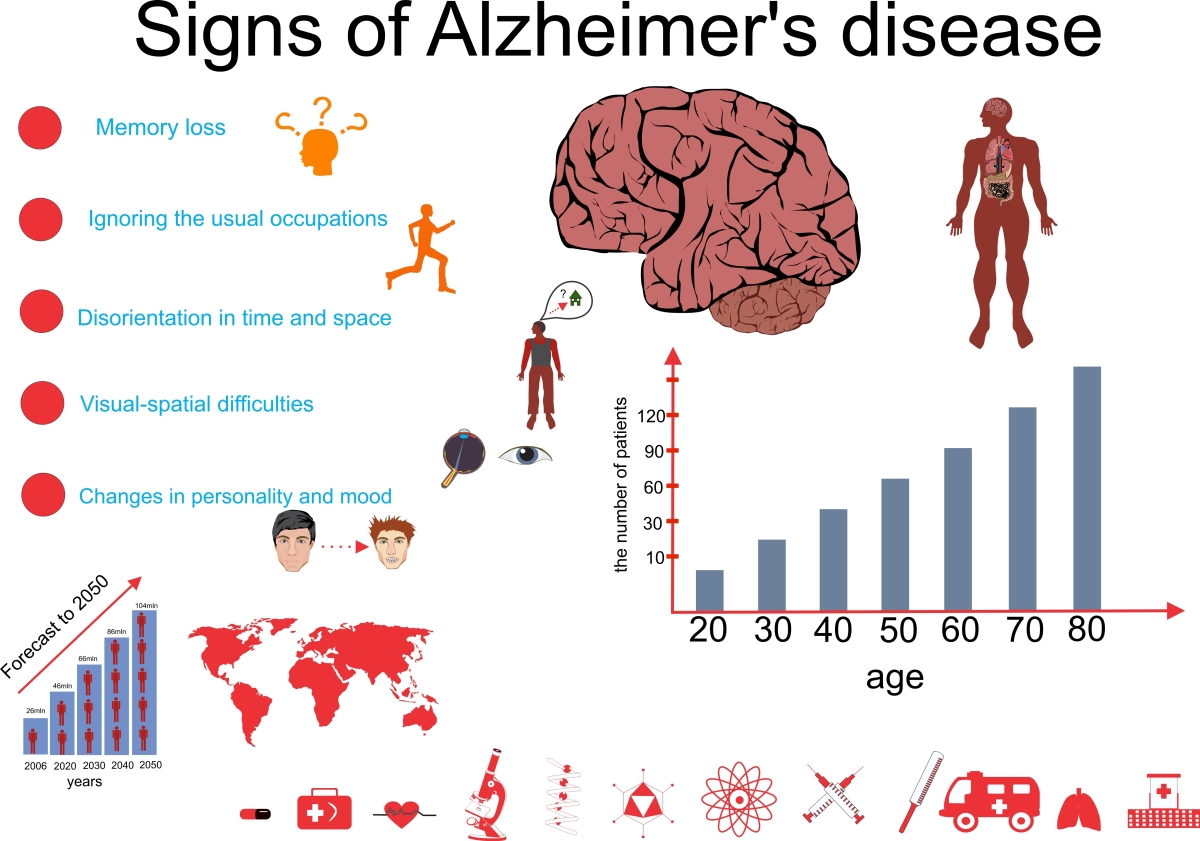What Deficiency Causes Alzheimer's Disease
As people age, their body and mind undergo several changes, which is completely normal and natural. However, in certain cases, these changes could be indicative of an underlying medical condition that requires attention. One such condition that is becoming increasingly common amongst the elderly population is Alzheimer's disease, which falls under the broader category of dementia. It is important to be aware of the causes and signs of this disease so that individuals can receive timely medical intervention. In this blog post, we will explore the differentiating factors between senile dementia and Alzheimer's disease, as well as the potential causes and symptoms of the latter.
What is Alzheimer's Disease?
Alzheimer's disease is a neurodegenerative disorder that causes gradual and progressive damage to the brain. It is named after the German psychiatrist and neuropathologist Alois Alzheimer, who was the first to observe the disease in 1906. Alzheimer's disease leads to a decreased ability to remember, think, and reason, making even the most basic of daily activities challenging for the affected individual. The disease is believed to account for nearly 60-80% of all cases of dementia. There is currently no cure for Alzheimer's disease, but there are treatments available that can help individuals manage their symptoms and maintain their quality of life.
Causes of Alzheimer's Disease
Despite extensive research, the exact cause of Alzheimer's disease remains unknown. However, there are several factors that are believed to contribute towards the development of this condition:
- Age: Alzheimer's disease is most common in adults who are 60 years of age or older.
- Genetics: Studies have shown that individuals who have a family history of Alzheimer's disease are more likely to develop the condition themselves.
- Environmental factors: Exposure to certain environmental toxins or traumatic brain injuries can increase the risk of developing Alzheimer's disease.
- Lifestyle factors: Individuals who smoke, have uncontrolled hypertension, or are overweight, may be at a higher risk of developing Alzheimer's disease.
It is important to note that not all individuals who exhibit these risk factors will necessarily develop Alzheimer's disease, and some individuals may develop the condition without having any of these risk factors.
Signs of Alzheimer's Disease
Alzheimer's disease is characterized by a gradual decline in cognitive function and memory. The symptoms include:
- Memory loss: Individuals may start forgetting information that they previously knew, such as names, dates, or places.
- Difficulty in communicating: Individuals may have trouble understanding conversations and finding the right words to express themselves.
- Difficulty in completing basic tasks: Individuals may struggle with even simple tasks such as dressing up or preparing a meal.
- Mood changes: Individuals may experience mood swings, becoming agitated, anxious, or depressed for no apparent reason.
- Withdrawal from social activities: Individuals may start avoiding social activities or personal hobbies that they previously enjoyed.
It is important to note that experiencing any of these symptoms does not necessarily mean that an individual has Alzheimer's disease. However, if these symptoms persist and interfere with daily life, medical evaluation is recommended.
What Differentiates Alzheimer Disease From Senile Dementia?
The term senile dementia is often used interchangeably with Alzheimer's disease. However, there are several differences between the two conditions:
- Cause: While the exact cause of Alzheimer's disease is still unknown, senile dementia is primarily caused by the deterioration of brain cells due to the natural aging process.
- Symptoms: While both Alzheimer's disease and senile dementia cause memory loss, there are some key differences in the symptoms exhibited. Individuals with senile dementia may experience difficulty speaking, reading, and writing, while those with Alzheimer's disease may exhibit rapid mood swings and personality changes.
- Treatment: While there is no cure for either condition, treatment options may differ depending on the type of dementia that an individual has. Medications such as cholinesterase inhibitors, which are used to treat Alzheimer's disease, may not be effective in treating senile dementia.
Conclusion
Alzheimer's disease and senile dementia are debilitating conditions that can severely impact an individual's quality of life. While there is no sure way to prevent these conditions, individuals can reduce their risks by living a healthy lifestyle, avoiding exposure to toxins, and remaining socially active. Early detection and accurate diagnosis can help individuals receive timely medical intervention that can considerably slow down the progression of the disease and improve their quality of life. If you or a loved one is experiencing any of the symptoms of dementia, it is recommended that you consult a medical professional as soon as possible.

Image Description:
An elderly woman is looking lost and worriedly staring at her hands. This image is indicative of the confusion and anxiety that individuals with Alzheimer's disease may feel as they struggle to remember even basic information.

Image Description:
An elderly man is holding his head in his hands, while a younger woman looks on with concern. This image is indicative of the confusion and distress that individuals with senile dementia and Alzheimer's disease experience as they struggle with memory loss and an inability to perform daily tasks.